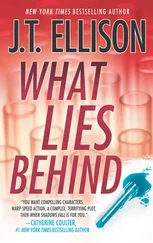‘We’ll leave the room for you to undress completely,’ said Jex. ‘Take everything off, please, and then get inside and close the door like this.’ He demonstrated the hinged door at the front, which opened into two parts, the top flap folding down when the subject was seated inside. ‘We’ll give you fifteen minutes then we’ll come back.’
Serena was grateful for this small privacy. She took off the chemise and silk drawers, opened the hinged flap of the wooden structure and forced herself to squeeze inside. It smelled worse than anything she had ever encountered, but she sat on the wooden bench as instructed. There was hardly any space and it was necessary to keep her feet tightly together and to cross her arms over her body. But it was not as uncomfortable as she had feared and the wooden seat had some kind of covering that softened it a little. By now she was strongly conscious of the child’s distress, and of the pain spiking through her lower stomach. But I’m ignoring you, Serena said to it.
The two doctors returned, inspected the box and the grid on which it stood, and at a nod from Jex, the young assistant kneeled down to set light to the charcoals.
‘This is like a fumigation process, if you’re familiar with that,’ said Jex. ‘There’s mercury in a small tank at the bottom of the box – you’ll be resting your feet on it. We’ve lit the charcoal directly underneath and as the heat rises the mercury will vaporize – turn to smoke. The fumes will soak into you and you’ll breathe them in as well. That seems to be burning quite well now,’ he said to the assistant.
‘How long must I be in here?’ asked Serena.
‘Three or four hours, I’m afraid. You won’t be able to open the door because you won’t be able to reach out to the catch, but we’ll stay in earshot, of course.’
‘You won’t remain in the room with me?’
‘I’m afraid we can’t. If we inhaled all the mercury vapour we administer…’ He made a gesture implying it would be harmful. ‘And we’ll have to keep this door closed to prevent it seeping out to the rest of the house. But don’t worry. We’ll look in at intervals to make sure you’re all right.’
‘And to see that the mercury’s staying at the right level of heat,’ said the assistant. ‘But there’s no danger of fire, Lady Cadence. Sometimes we need to add a little more charcoal or mercury halfway through.’
‘We’ll hear you if you call out,’ said Jex. ‘Stay as calm as you can. It’ll soon be over and you’ll quickly recover.’ He nodded to her and the two men went out, closing the door.
The room was very quiet, apart from the occasional sizzling from the charcoal, and several times Serena thought the mercury in the tank spat as it bubbled from the heat. The only other sound in the room was the ticking of the clock, which Jex had moved to the windowledge where Serena could see it.
At first she thought nothing much was going to happen, and that all the talk about pain and exhaustion was purely for the doctors to surround themselves and their remedy with a degree of mystery. The small container of mercury under her feet was certainly warming up, but it was not burningly hot or even particularly uncomfortable. Her skin was starting to tingle where the mercury had been painted on earlier, but that was all. It’s bearable, thought Serena. I’ll get through it. But will the child get through it?
The clock’s hands pointed to two o’clock. Normally she would have just finished her lunch and be drinking a cup of Mrs Flagg’s excellent coffee. She would like some coffee now; Dr Martlet had told her to have only the very lightest of breakfasts and no lunch. She had done as he said, but she was used to a substantial lunch and she felt slightly light-headed.
It was half-past two. The inside of the box was beginning to feel uncomfortably warm and Serena began to fear it would overheat and she would burn. They had said they would come back at intervals, but how long would those intervals be? And if she shouted, would they really hear? The house was large and the doors were heavy and close-fitting. She moved restlessly, trying to get more comfortable, but the box was too small to permit much movement. She managed to get her arms into a slightly different position, and as she did so the mercury fumes finally started to rise. There was a smell like hot tin in her nostrils and a stinging sensation when she breathed in. Serena felt even more light-headed and had the impression of a thin mist forming in front of her eyes. She had no idea if there was actual mist from the hot mercury or if it was just the result of its fumes on an empty stomach clouding her vision. Her skin was starting to feel as if it was being scraped with a knife, but it was still all bearable.
Mr Jex looked round the door just then, asking, was she all right – was she in much pain?
‘Only a little,’ said Serena, relieved to hear her voice came out fairly normally.
‘Sure?’
‘Yes. It’s unpleasant but not unduly so. I can bear it.’
‘Good,’ he said, and went out, closing the door.
But if Serena was bearing it, the child was not. It was churning inside her – the word ‘threshing’ occurred to her – its movements sending ripples of pain across her stomach and spiking down between her legs. She moved again, but the pain was building up into a vicious wave, and she cried out and instinctively tried to hunch over but could not because of the cramped space. This was part of the cost she must pay for curing the repulsive disease Julius had given her. But what about the child? Was the child going to be part of the cost she would pay? Serena, sobbing and moaning, was beyond caring. The mist was partly obscuring her vision again and the stench of hot metal was making her feel sick.
The pain receded and she gasped with relief, sweat running down her face, but now the mercury vapour was soaking into her skin, down and down, as if it was scouring her body, trying to find the core of the disease. Serena moaned, and tried to withstand it, but it reached deeper and deeper, until she had the impression that her very bones were bubbling and seething.
The child was like a hard, heavy lump at the pit of her stomach. It’s dying, she thought. It’s dying or it’s already dead. She had no idea if it was her own pain or something in the mercury vapour that was causing the child’s distress, and she no longer cared. Because you’ll never love it, said her mind. Remember? You’ll never love it and you’ll never even like it. It was perfectly true. She could scarcely even think of the child as human any more. It was as if the thing in her womb was nothing more than a black twisted lump of disease. She shuddered and pushed this nightmarish image away, and she thought she lost consciousness for a time because when the mist cleared slightly the clock was showing a quarter-past three.
The clock’s hands had reached quarter to four when a warm viscous fluid began to seep between her legs, and agony tore mercilessly through her lower body. Tears ran down her face, this time not from the burning pain of the mercury on her skin and within her bones, but because of the little lost life that was leaching away. ‘Forgive me,’ she whispered to it. ‘I know you’re dying, and I’m so sorry…’
Sweat streamed down her face and ran stingingly into her eyes. She gasped and clenched her fists. She would not call for help, she would not… But there was a dreadful pressure between her legs now. The child was thrusting its blind, fumbling way out of her. Serena tried to lean back, tried to widen her legs to ease the brutal pushing, but the box was too narrow and she could not. Blood trickled down her legs and she sobbed with the agony and, finally, with the loss.
‘I don’t want you,’ she said to the child. ‘I never did. But I’m so sorry you’ve got to die before you’re born. I’m so dreadfully sorry…’
Читать дальше












